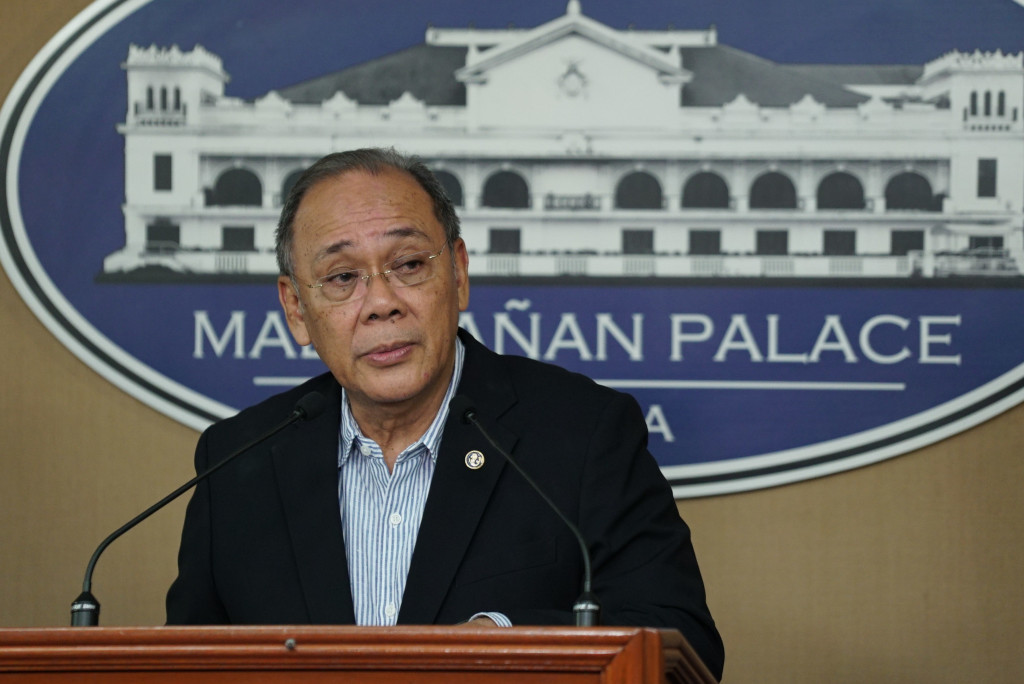The Philippines is turning down a grant of 250 million euros ($278.7 million) from the European Union (EU) that will allow the bloc to interfere with the country’s affairs, but remains open to accepting other forms of EU financial assistance, Malacañang said on Thursday.
“The President has approved the recommendation of the Department of Finance (DOF) not to accept grants – this is not necessarily humanitarian aid – from the EU that may allow it to interfere with the internal policies of the Philippines,” presidential spokesperson Ernesto Abella said in a press briefing.
Finance Secretary Carlos Dominguez noted that the proposed EU grant “would involve [a] review of our adherence to the rule of law.”
The “grants pertain to particular projects or programs that have the potential of affecting the autonomy of the country,” Abella said.
President Duterte has a testy relationship with the European Union, which he lambasted for expressing concern over the death toll in his administration’s war on drugs. He said the Philippines could survive even if the European Union would decide to withhold aid to the country.
Asked what Malacañang considered interference, Abella said comments did not necessarily amount to interference. “But when it begins to impose certain conditionalities that will interfere with the way we handle things, then we consider that objectionable.”
Abella said the country nevertheless remained open to humanitarian and other kinds of aid from the European Union.
“The Philippines reserves the right to accept loans and grants that help attain its objectives of promoting economic development, inclusiveness and reducing poverty,” he said.
EU Ambassador Franz Jessen said the DOF informed him of the government’s decision at a meeting on Wednesday.
“Our understanding is that it solely applies to new EU grants. It was in a meeting with DOF yesterday (Wednesday). We asked for a written clarification,” Jessen told the Inquirer.
Jessen said ongoing projects initiated by the European Union, mostly in Mindanao, would not be affected.
The European Union has invested over 35 million euros (P1.8 billion) in projects in Mindanao to help achieve peace and sustainable development in the region.
For 2016-2017, it has earmarked 5.5 million euros (P287 million) for the implementation of the Comprehensive Agreement on the Bangsamoro, conflict-prevention and peace-building.
Thelma Gecolea, public affairs officer of the EU Delegation to the Philippines, said many projects in the country, coursed through various nongovernment organizations, would not be affected by the government’s move.
Asked for the explanation behind the rejected development aid, Jessen said “human rights were mentioned.”
Trade perk not affected
The European Union is the largest foreign investor in the Philippines, the only member of the 10-nation Association of Southeast Asian Nations to enjoy duty-free exports under the union’s Generalized System of Preferences plus (GSP+) incentives for developing countries.
The Philippines’ duty-free exports to the European Union in 2016 was worth around 1.6 billion euros ($1.78 million), according to EU Delegation data.
Trade Secretary Ramon Lopez said the Philippines would not leave the tariff-free trade arrangement with the bloc although the trade incentive came with its own set of conditions.
Lopez said that unlike development aid, GSP+, which allows zero tariff for over 6,000 Philippine products entering the EU market, dealt with “commercial transactions.”
Top exports
Top Philippine exports to the European Union under the scheme are agricultural oil products, electrical equipment, processed meat and fish, optical products, and processed vegetables, fruits and nuts.
“[T]hey’re commercial transactions that can mutually benefit both sides,” Lopez told the Inquirer in a text message.
The GSP+ status comes with the condition that the Philippine government comply with 27 international conventions, including those that call for the protection of human rights and the abolition of the death penalty. The Philippines is a signatory to these conventions.
In March, the EU Parliament issued a joint motion for a resolution that said, among other things, that the EU Commission should “use all available instruments to persuade the Philippines to put an end to extrajudicial killings related to the antidrug campaign,” including the possible removal of the GSP+ if there were no substantial improvements.
Envoy summoned
The European Union also summoned a Philippine envoy in March to explain an expletive-laden tirade by Mr. Duterte, who threatened to hang EU officials for opposing his efforts to reimpose the death penalty.
The President has lashed out at the European Union repeatedly for raising human rights concerns over his deadly crackdown on illegal drugs.
“If you think it is high time for you to withdraw your assistance, go ahead, we will not beg for it,” Mr. Duterte said in a speech in October, referring to aid from the United States, the European Union and other critics.
Windfall from China
The announcement to turn down EU grants came days after Mr. Duterte’s working visit to China to attend the Belt and Road Forum for International Cooperation.
He had a bilateral meeting with Chinese President Xi Jinping on May 15 and he brought home four agreements. One agreement seeks to implement a RMB 500-million grant to conduct feasibility studies for major projects, including the construction of a drug abuse treatment and rehabilitation center, and bridges crossing the Pasig River.
Abella said the government would find ways to support projects that may be deprived of funds from the European Union.
Mendicant attitude
“As you can very well see from the past achievements of the President, he has brought in an enormous amount—huge slabs of bacon,” he said.
Abella also pointed out that the Philippine economy under Mr. Duterte was performing well, and that people needed to believe the country could fend for itself.
“I think we need go gain a certain confidence in ourselves, and this is exactly the kind of mentality that the President wants Filipinos to avoid, a mendicant attitude,” he said. —WITH REPORTS FROM JULIE S. ALIPALA AND AP


